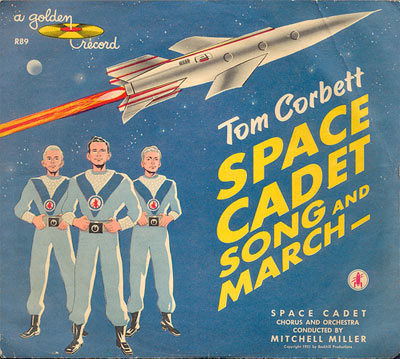"Nobody becomes president whose last name ends in a vowel," he said.
The remark struck me, because I wasn't really used to thinking of my friend in ethnic terms.(He'd was a little over-rhapsodic about "The Sopranos," but then again, what man wasn't?) But my friend was heir to a not-so-distant history, the son of a family that -- thanks to its Mediterranean origins -- had just a few decades previous been considered not-quite-fully American. By 2005 or 2006, whenever I had that discussion with my friend, those days seemed past -- but he still felt it in his bones.
I thought about my friend last night, when I read the New York Times' story about how the Anti-Defamation League has decided to oppose the Cordoba House, better known as the Ground Zero mosque. I was already saddened by the turn of events when I stopped, gobstruck, by the Times' pullback to a national overview of the story.
In North Carolina, Ilario Pantano, a former Marine and a Republican candidate for Congress, has also campaigned on the issue, and says it is stirring voters in his rural district, some 600 miles away from ground zero.
A few days ago, at a roadside pizza shop in the small town of Salemburg, he attacked the proposal before an enthusiastic crowd of hog farmers and military veterans.
“Uniformly, there was disgust and disdain in the room for the idea,” Mr. Pantano said.
Ilario Pantano? That's a name with lots and lots of vowels! He's the son of an Italian immigrant, and he grew up in Hell's Kitchen, New York! Now yes, he's a Marine -- one with a controversial history -- but does anybody think that Ilario Pentano would've stood a chance in hell of being elected to Congress in, say, 1960? From North Carolina?
I don't mean to pick on my Tarheel friends. The North Carolina of 2010 is different from the North Carolina of 1960. That's at least partly because the America of 2010 is different from the America of 1960. (Or the America, say, of 1941.) Italian Americans -- except, maybe, for the ones on "Jersey Shore" -- aren't really seen as "others" anymore. The emphasis, for people who aren't Italian-American, is a little less "Italian" and a little more "American." Both sides have benefited from the exchange, I think. But it's not been that long since Ilario Pantano would've been seen as not-quite-American. He, at least, has reaped the rewards of an America that has broadened its mind about who gets to be in the club of "real Americans."
And he's using those rewards ... to try to keep other people out of the club.
The Anti-Defamation League fares much, much worse in this comparison, of course, because its whole reason for existing was to fight for the right of Jewish-Americans to live fully as Americans. And now it, too, has seen fit to try to keep other people out of the club.
Here, astonishingly, is the "about" section at the ADL's website:
The Anti-Defamation League was founded in 1913 "to stop the defamation of the Jewish people and to secure justice and fair treatment to all." Now the nation's premier civil rights/human relations agency, ADL fights anti-Semitism and all forms of bigotry, defends democratic ideals and protects civil rights for all.
A leader in the development of materials, programs and services, ADL builds bridges of communication, understanding and respect among diverse groups, carrying out its mission through a network of 30 Regional and Satellite Offices in the United States and abroad.
The parts in bold? Those words can no longer be considered true in any meaningful sense. They are, in fact, a lie. It hurts me to say so.
The people who oppose Cordoba House -- the people who, somewhat gleefully, would have America march off in a "clash of the civilizations" against the Muslim religion -- would have us believe that Islam, and Muslims, are a monolith. That the most extreme interpretations of that faith are, in fact, the only legitimate interpretations. That Osama bin Laden is no different from Feisal Abdul Rauf is no different from my halal butcher down the street.
But that's untrue. It's pernicious nonsense. And given five minutes of honest, empathetic thinking, most Americans would have to concede the actual truth: That it's complicated. That there are a few real violent nutjobs, like Osama and Al Qaeda, and a few more not-violent-but-still-kinda-asshole-types who want their religion to rule the rest of us -- and a whole lot more people who have faith, who wrestle with its demands, and just try to live each day as best their conscience allows.
Which is no different, really from the rest of America. Or the rest of humanity.
Listen: a terrible wound was inflicted upon America on 9/11. I know: I saw the wreckage of the towers myself and smelled the smoke. I visited the field in rural Pennsylvania where Flight 93 crashed. These experiences marked me and changed my life.
But we betray our values, deeply and perhaps irreparably, if we hold all Muslims culpable for the acts of a few. This moment is a crucible. I really believe that, 20 years from now, a few people will be pround of having been on the right side of this issue -- and the few people who still stand up then for today's discrimination will be viewed much like Ann Coulter defending McCarthyism today: as embarrassments.
The history of America encompasses many stories, many narratives, but one of them is this: the ever-expanding notion of what it means to be American. Ilario Pentano is, I believe, aware of this story. The folks at the ADL certainly are. We are always proud when those definitions expand -- and always ashamed, even if it takes a few years, when they contract. This can be a moment when we choose to be proud before posterity. I sincerely hope it is.





